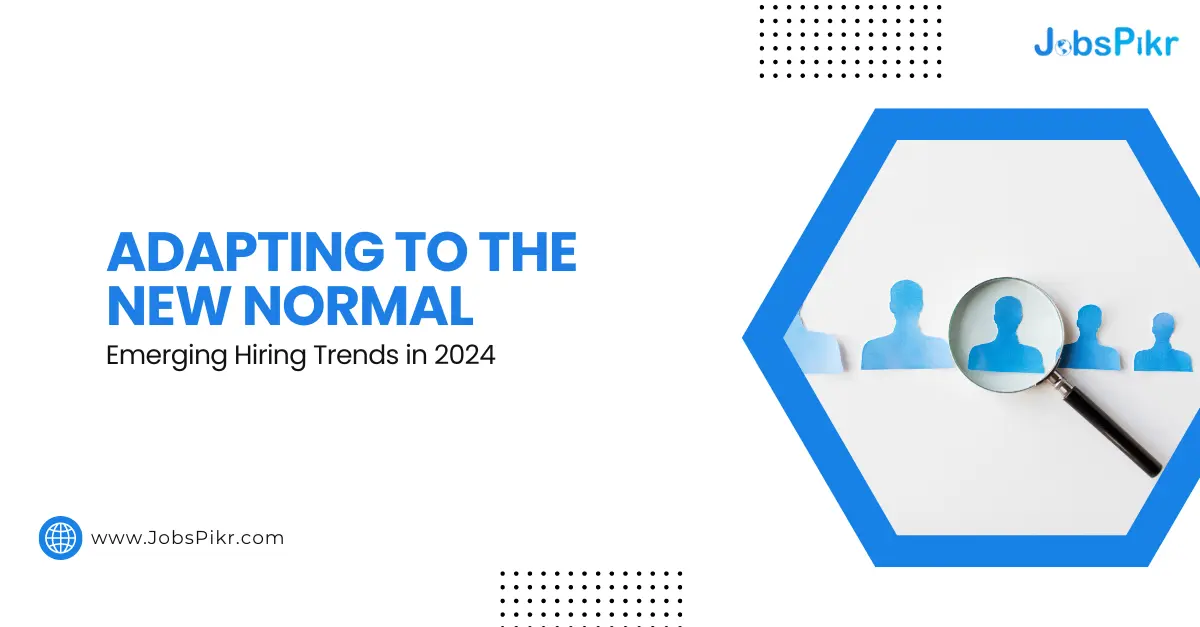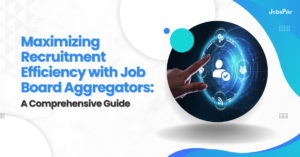The world of work is undergoing a seismic shift. The COVID-19 pandemic has accelerated changes that were already underway, and the job market is adapting to a new normal. As we move into 2024, hiring trends are evolving to meet the demands of a transformed workplace.
Let’s explore some of the key emerging hiring trends that employers and recruiters need to be aware of.
Remote Work
One of the most significant shifts in the job market is the rise of remote work. With many countries still grappling with the pandemic, companies are recognizing the benefits of flexible work arrangements.
According to Forbes, the percentage of U.S. companies offering flexibility increased from 51% at the start of 2023 to 62% around November. This means that job seekers can expect more opportunities for remote work, and employers must be prepared to manage distributed teams effectively.
Virtual Interviews
Virtual interviews have become the norm in the past year, and they’re here to stay. Video conferencing tools like Zoom, Microsoft Teams, and Google Meet have made it easier for recruiters to connect with candidates remotely.
Virtual interviews save time, reduce costs, and enable recruiters to assess candidate fit without being limited by geography. They also provide an opportunity for candidates to showcase their tech skills and familiarity with virtual collaboration tools.
Diversity, Equity, Inclusion and Belonging (DEIB)
In 2024, DEI will continue to play a critical role in hiring strategies. Organizations are increasingly committed to building diverse teams that reflect their customer base and foster inclusivity. Recruiters will need to prioritize diversity in their talent acquisition efforts, using tools like blind hiring, diversity metrics, and inclusive language in job descriptions. Employers must also ensure that their interview processes are free from bias and create a welcoming environment for all candidates.
To know more about the subject, listen to our podcast on ‘How DEI Initiatives Vary Across Different Regions’.
Skills Over Experience
As technology continues to advance, skills are becoming more important than experience in many industries. With the rapid pace of innovation, employees need to constantly upskill and reskill to remain relevant. Recruiters will focus on identifying candidates with transferable skills, such as data analysis, digital literacy, problem-solving, and communication.
Data from JobsPikr already shows how the shift is now toward soft skills like management, sales, operations and such. This change towards skill-based hiring presents opportunities for workers who may not have traditional degrees or extensive experience but possess valuable skills that can be applied to the role.
Data-Driven Decision Making
Data analytics is transforming the way businesses operate, and recruitment is no exception. HR departments are leveraging people analytics to make informed decisions about talent acquisition. By analyzing data on employee performance, retention rates, and training outcomes, recruiters can identify patterns and trends that help them optimize their hiring process. For instance, data might reveal which qualifications or skills are most closely linked to success in a particular role, enabling recruiters to refine their selection criteria.
Employee Wellbeing
Image Source: HR Vision
Employee well-being has risen on the agenda in recent years and will continue to be a top priority in 2024. Companies recognize that supporting mental health, physical health, and financial wellness is essential for attracting and retaining top talent. Expect to see more emphasis on employee benefits like mental health days, gym memberships, and financial planning resources. Employers will also encourage work-life balance by promoting flexible working hours, telecommuting options, and stress management programs.
Artificial Intelligence (AI) and Automation
AI and automation technologies are transforming various industries, and recruitment is no exception. AI-powered tools can streamline tasks like screening resumes, scheduling interviews, and even conducting initial screenings. However, these advancements also raise concerns about bias in algorithms and potential job displacement. Recruiters must ensure that AI systems are designed ethically and transparently to avoid perpetuating existing inequalities.
Freelance and Contract Work
The gig economy is growing rapidly, and freelance and contract work are becoming increasingly popular. Professionals are seeking greater flexibility and autonomy, while companies benefit from access to specialized skills without long-term commitments. Recruiters will need to adjust their strategies to attract and engage independent workers, offering competitive pay rates, flexible project assignments, and opportunities for professional development.
Employer Branding
Image Source: AIHR
In today’s tight labor market, employer branding has never been more crucial. Candidates want to work for companies that share their values, offer growth opportunities, and provide a positive work culture. Employers must develop strong employer brands that highlight their unique selling points and appeal to top talent. Effective employer branding includes creating compelling content, showcasing company culture, and actively engaging with potential candidates through social media and career fairs.
Talent Communities
Lastly, talent communities will play a vital role in hiring strategies for 2024. These online platforms bring together professionals with shared interests, backgrounds, or skills, allowing them to network, collaborate, and learn from each other. Recruiters can leverage talent communities to discover passive candidates, build relationships with potential hires, and gain insights into industry trends. To maximize their impact, recruiters should engage authentically with community members, contribute valuable content, and demonstrate genuine interest in their careers.
Conclusion
The global pandemic has accelerated preexisting trends in the job market, and recruiters must adapt quickly to the new normal. From remote work and virtual interviews to DEI, skills over experience, and data-driven decision-making, the landscape of hiring is changing fast.
Adapting at the right time to new changes will allow companies to stay competitive and continue attracting top talent.




